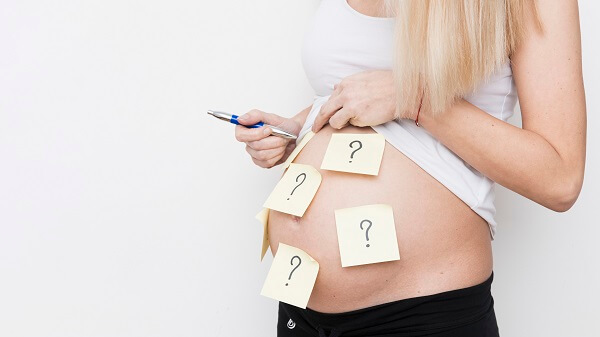Critical risk factors for High-risk Pregnancy:
Some of the critical factors which can lead a normal pregnancy to turn into a high-risk pregnancy are as follows.
1) Advanced Maternal Age:
Nowadays late marriages are common as a result of which most couples plan their pregnancy in the late thirties. Another reason is late conception due to Fertility issues and IVF pregnancy. In many cases, new moms are already suffering from Diabetes or Hypertension due to advanced age. In such situations, pregnancy is considered high risk.
2) Previous LSCS:
In women who have previously undergone a C-Section, there is a slight risk that the placenta may get stuck to the uterus-wall making it very difficult to remove during delivery. Should this situation arise a high-risk pregnancy management protocol will need to be followed.
3) Bad Obstetric history/ Multiple Pregnancy Losses:
Women who have a previous history of pregnancy loss generally need high-risk pregnancy management. This could be due to uterine malformation or immunological problems, diabetes in pregnancy or some kind of medication or genetic factors.
4) Precious Pregnancy:
Women who are going to deliver after an IVF treatment, after many years of marriage are generally at risk of having a critical pregnancy.
5) Drug Allergy:
Expectant women who have a certain drug allergy can be candidates of a high-risk pregnancy. The allergy could be to dietary supplements, antibiotics or anaesthesia medicine. It’s important that such patients be treated for the allergy first to avoid an anaphylactic reaction which can put the mother’s & baby’s life at risk.
6) Fetal Malformation:
If the baby has a congenital birth defect, the delivery is considered to be high risk as quite a few of these babies need immediate assistance after extraction. We need to be prepared with all neonatal care procedures to save the baby.
7) Mother with Rh-Negative blood group:
If the mother is Rh Negative, her pregnancy is considered a high-risk pregnancy. This is because, if the baby is Rh Positive, her body will start producing antibodies. These antibodies can lead to a serious complication in the baby like Haemolytic anaemia and jaundice. These babies need special care and expert supervision for early diagnosis of anaemia and neonatal jaundice.
8) HBsAg Positive Mother:
If a pregnant woman is suffering from Hepatitis B, she can transmit this virus to the baby and to the people coming in contact with her. Newborn babies of such mothers need immunoglobulins as well as vaccination at birth.
9) Pre-existing Hypertension:
If the mother has hypertension, she might suffer from superadded hypertension during pregnancy. This might cause her BP to suddenly shoot up. This can lead to brain haemorrhage, liver failure or multiple organ failure in the mother which can seriously risk the life of the mother & child. Hence, the blood pressure needs to be monitored and if required a cardiologist may be involved for proper management.
10) Diabetes:
Nearly 50% of the pregnancy cases that we are seeing today have diabetes. This could be due to the change in lifestyle. Diabetes can lead to multiple issues like congenital defects, intra-uterine growth retardation and in some cases there might be sudden suppression of the placenta. There is also the risk that the baby might be too big or too small.
11) Hypothyroidism:
Hypothyroidism is generally associated with other disorders like polycystic ovarian syndrome. Also, the chances of autoimmune disorders are very high in such pregnant women which can put the mother & baby at risk. It has been seen that babies born to mothers with undiagnosed and/or untreated hypothyroidism generally have a lower IQ. Hence managing pregnancy during hypothyroidism can be challenging.

